Course correction: How restaurants are rebelling against performative dining
From phone bans to surprise menus, new collabs and extended late-night dining, restaurants are pushing back against the homogenisation of hospitality, one real meal at a time. No filter, no wi-fi, no problem.
Something is rotten in the state of dining. By the time your reservation at the algorithm-approved restaurant rolls around, you’ve already seen its viral bone-broth affogato on social media a dozen times. The experience, which had you drooling on first viewing, quickly becomes an arid affair that is less about eating and more about re-enacting. Depressingly, 58 per cent of young Brits choose restaurants based on such content, and in Dubai that number jumps to 70 per cent. Down under, one in five Aussies admits to dining at a restaurant purely for the post. Good taste, it seems, is being reduced to the tired confirmation of whatever’s trending. But a counter-movement is starting to simmer, from Paris to Sydney, as restaurateurs push back against performative dining and reclaim what hospitality is meant to be: creative, sensory and human.
While many restaurants slide like butter off a hot knife into the gaping mouth of monocultural mediocrity, some are distancing themselves from social media sameness. One way they’re spicing things up is by introducing a bit of mystery, such as a “hidden menu”, whereby minimal details are shared online to encourage diners to trust the chef. Others are banning smartphones altogether or at least encouraging guests to stow away their screens: New York’s Hearth has provided decorative lockboxes at its tables since 2018; Alsatian bistro Petits Plats de Mamama said “non” to phones in 2023, a decision that has resulted in fuller tables for longer; and Veronese restaurant Al Condominio is even bribing customers with a free bottle of wine if they’re willing to detach from their devices during dinner.
In this vein, London institution St John is a pioneer – it has been against mobile phones at the table since they were the size of car batteries and answering one looked like you were calling in an airstrike on the aubergines. Trevor Gulliver, co-founder of St John, tells Monocle that “lunch and dinner should be sacrosanct, a haven and a respite against the vicissitudes of life outside the front door.” According to Gulliver, the sign in the restaurant that prohibits devices at the table is often met with a sigh of relief.
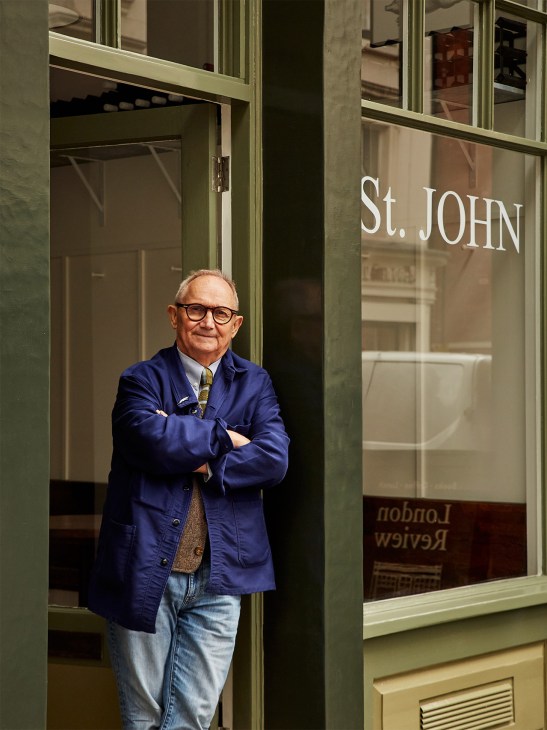
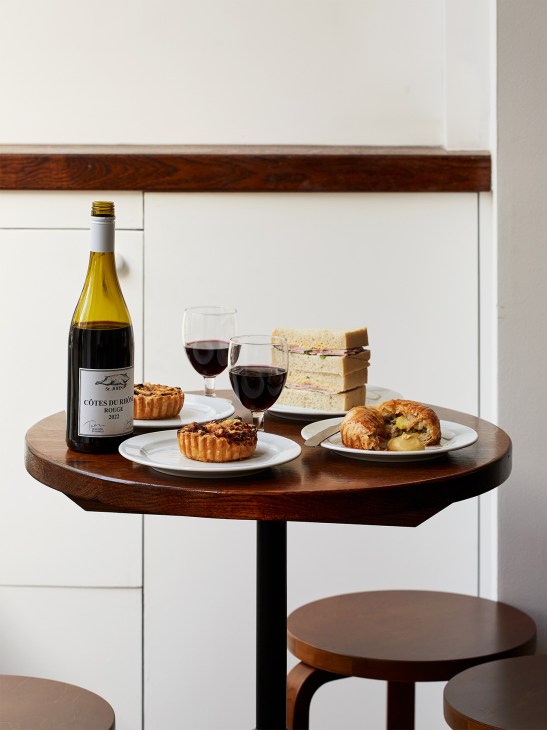
Hospitality friends, with benefits: the rise of restaurant collaborations
St John is also at the forefront of another trend that’s taking shape in the industry: collaboration. The nose-to-tail institution is teaming up with London Review Bookshop in Bloomsbury to serve baked goods such as its classic doughnuts and spiced Eccles cakes, sandwiches, coffee and a small wine selection. “Have a madeleine,” said Gulliver in the bookshop’s basement, “they’re warm.” This writer didn’t need to be asked twice and the ensuing Proustian moment brought back memories of a time when breaking the spine of a new book in a buzzing café was more pleasure than performance. But if the relaxed atmosphere in this collaborative space is anything to go by, the good times could well be coming back.
In tune with St John’s long-standing distaste for technological intrusions on sensory experience, the café does not offer free wifi. For Gulliver, that’s not what a bookshop is for. On the other hand, a glass of wine in the rear courtyard with a book “is quite a natural thing to do.” Who knows? With enough well-priced plonk, Rupi Kaur’s latest collection of lowercase platitudes might actually pass for poetry.
But this collaborative spirit is also part of a larger restaurant-to-retail boom. Octavia Pendrill-Adams, head of brand and marketing for Delli, an online platform for independent food and drink producers, says that the trend stems from a broader cultural shift whereby the lines between hospitality, retail and lifestyle are blurring. “Restaurants aren’t just places to eat anymore, they are brands that people want to live with,” she says. “A hot sauce, a bookshop collaboration or a deli counter – these are all ways of embedding that label into everyday life.”
Like savvy media brands, restaurants are learning to diversify their income streams with slower, more tactile experiences. As Pendrill-Adams points out: “an olive oil can sell thousands of units a week regardless of covers.”
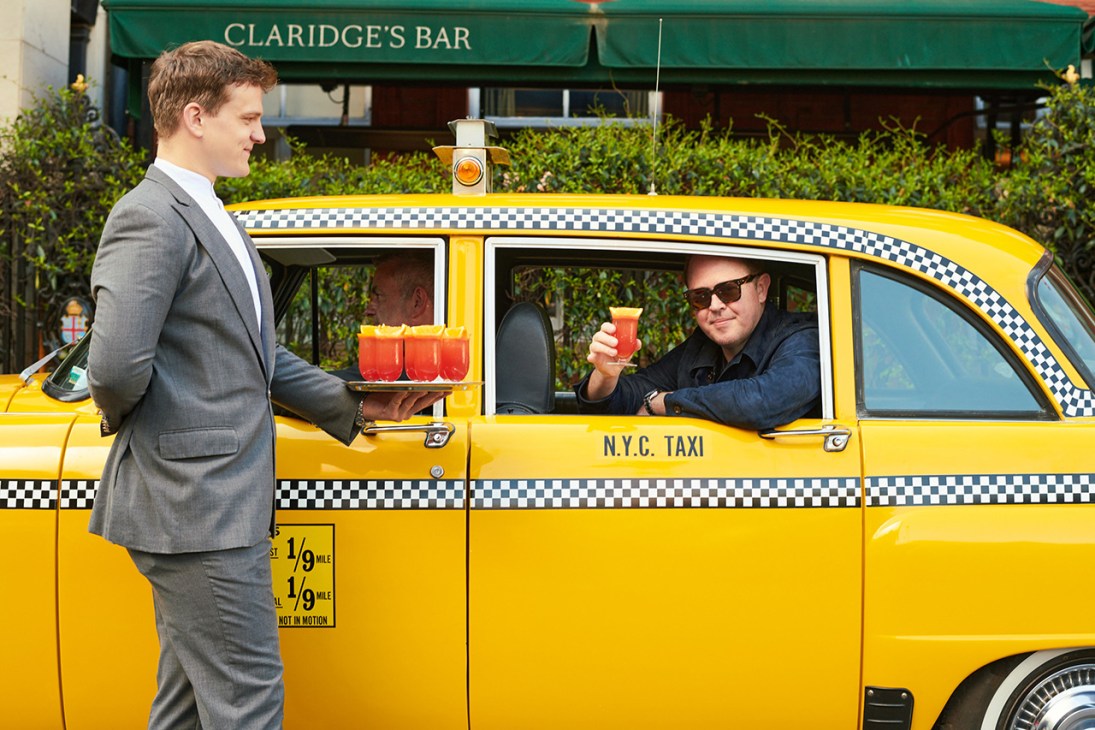
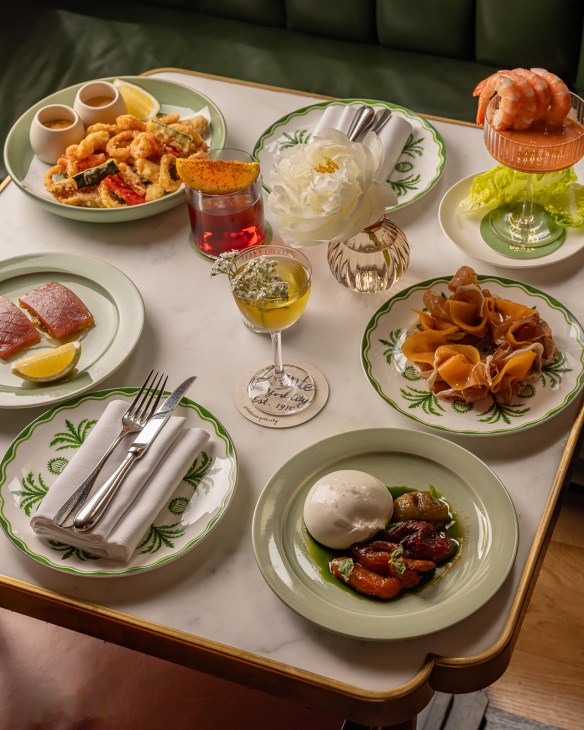
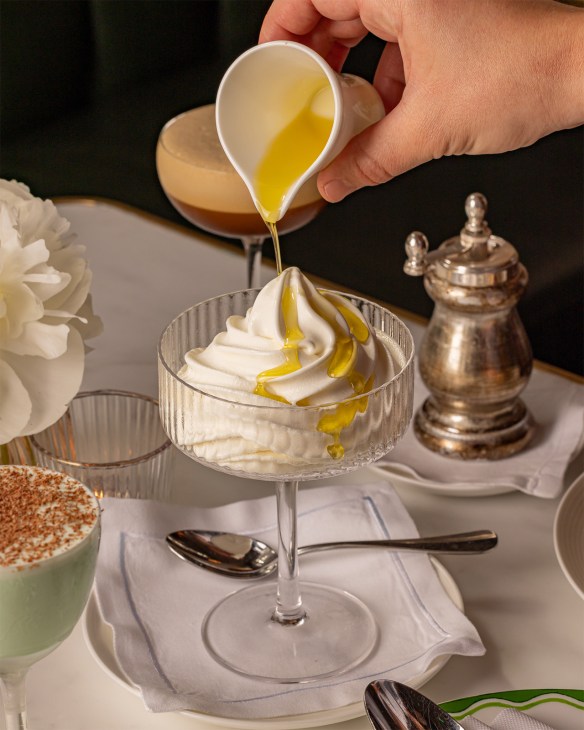
“Collaboration” and cocktails were on everyone’s lips at Claridge’s during a recent autumn-menu tasting provided by Dante NYC. The storied Manhattan restaurant and bar recently extended its summer residency at the Mayfair hotel until the end of the year (the pair’s other venture is a rooftop restaurant in Beverley Hills). Dante co-founder Linden Pride tells Monocle that if you work with the right partner, “the result is an environment that transcends what either of you could have done alone. The two groups bring loyal patrons from each side and those patrons ‘trust’ the introduction.” According to Pride, Dante-Claridge’s juxtaposition of swilling toffee-apple manhattans and spooning fresh spaghetti alla vongole to a backing track of American music in a formal art deco setting creates a “premium and elevated experience that is also approachable and brings people back, sometimes multiple times a week.” There might be no place like New York in the autumn but the dining room at Claridge’s is not a bad compromise – and there’s not a pumpkin-spiced latte in sight.
At Paired, an event series from the teams behind Carousel and Ava Festival that matches chefs with DJs, dinner ends on the dance floor. At their Tate Modern event, Laurent Garnier and chef Alexis Bijaoui trade the petit-fours for a party by banishing the tables to the outskirts and turning up the funky floor-fillers at the end of the meal. Banning phones has been done and brand collaborations are good PR but bringing the afterparty to the dining space is changing the way people go out, evolving the experience beyond a viral chocolate bombe.


Time is money: the reclaiming of dining hours to survive and thrive
Social media’s dulling of the restaurant experience combined with the cost-of-living crisis, is driving hospitality venues to try all manner of ways to get crowds in the door and amortise the rent. In Sydney, a new morning economy has emerged as cafés enjoy a roaring trade in the ungodly hours thanks to Aussies who enjoy treating themselves to a proper breakfast after a dawn surf and a casual pre-work half-marathon (or as Sydneysiders call it, a lazy Tuesday). When late-night television debuted in the 1950s it was likened to discovering an attic above traditional programming – Australian cafés, it seems, have uncovered a basement. And perhaps sensing that they’re onto something, many such establishments are now beginning to reopen in the evenings for dinner service, coffee and community events.
But just as early-morning service is seeing a bump, so too is the return of late-night bookings, which had thus far failed to recover from the impact of the coronavirus pandemic. “The conviviality of London is being conspired against,” says Jeremy King of The Wolseley and Arlington fame. That’s why he’s offering a 25 per cent discount on any meals booked post 21.15 at The Park. In part, it improves overall quality of service by encouraging the spread of covers beyond the first seating, but also helps late-night diners, who typically spend less time in restaurants than early birds, to get their money’s worth. Booking site First Table has even introduced a “Last Table” function for peckish night owls – a great coup for individuals who prefer to spend their hard-earned money on meals without the company of children and people wearing Crocs.
Your table is ready
Whether it’s mystery menus, dinner and a dance party, discounted late-night bookings or brand collaborations, restaurants are learning that there’s more to hospitality than dishing out algorithm-approved eats. As the circle-light carrying lunatics of the world push us further into the widening gyre of culinary homogeneity, the lesson to take home in a doggy bag is that an authentic experience can only come from an establishment that is willing to take the risk of being itself. Across the world, from Lisbon to Los Angeles, the restaurateurs leading this quiet revolution share one belief: hospitality should feed the senses, not influencers’ vicarious followers. As far as we know, the only ring light at The Last Supper was a halo.
To hear more from St John’s Trevor Gulliver on the restaurant’s collaboration with the London Review Bookshop, tune in to ‘The Stack’ on Monocle Radio.


